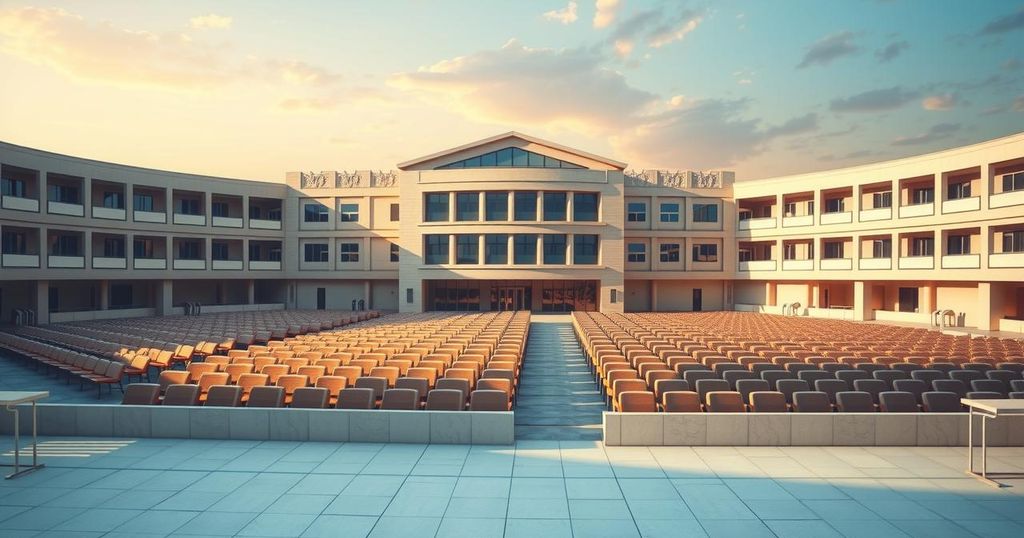Comoros Conducts Parliamentary Election Amid Opposition Boycott

Comoros held a parliamentary election on Sunday, marked by a boycott from opposition leaders accusing President Assoumani of authoritarianism. Approximately 330,000 citizens were eligible to vote, but low turnout was anticipated due to public disillusionment. Assoumani’s party’s previous elections have faced accusations of fraud, contributing to ongoing skepticism surrounding the electoral process.
On Sunday, Comoros conducted a parliamentary election amidst a boycott from some opposition leaders. They accused President Azali Assoumani and his party of becoming increasingly authoritarian and raised concerns regarding the election’s integrity. The one-day event will choose representatives for 33 legislative seats, with results anticipated next week from the national electoral commission.
Approximately 330,000 voters are registered in the nation, which has a total population of 850,000. Nevertheless, opposition parties expressed fears of low voter turnout, reflecting widespread disillusionment with the democratic process. Assoumani’s ruling Convention for the Renewal of the Comoros party had previously won 20 of 24 contested seats in the 2020 parliamentary elections.
President Assoumani cast his ballot in Mitsoudjé on Grande Comore, the largest island in the archipelago. Opposition parties have described past elections—including the 2020 vote—as a “masquerade,” emphasizing that they were neither free nor fair. Following last year’s presidential election, which Assoumani also won amid accusations of fraud, violent protests erupted in the streets.
The Juwa Party, associated with former President Ahmed Abdallah Sambi, was among the groups boycotting the election, continuing its stance from the previous parliamentary election. Comoros, an archipelago off Africa’s east coast, has experienced numerous military coups since attaining independence from France in 1975. Assoumani originally took power in 1999 through a coup and has since faced criticism for his governance.
Despite stepping down in 2006, Assoumani returned to power and has held the presidency through successive elections. His administration has seen constitutional changes that bypassed term limits, prompting concerns about political stability and governance in the region. The Africa Center for Strategic Studies has noted that under his rule, Comoros has seen an increase in political repression and non-competitive electoral practices.
Voting proceeded even as Tropical Cyclone Dikeledi approached, threatening the Comoros archipelago and nearby French territory Mayotte. The electoral process’ execution reflects the challenges the nation faces amidst a backdrop of political skepticism and environmental vulnerabilities.
The parliamentary election in Comoros highlights ongoing tensions between the ruling regime and opposition parties. With allegations of authoritarian governance and concerns about electoral integrity, the low voter turnout is indicative of public dissatisfaction. As Comoros navigates political challenges and natural threats, the implications for its democratic processes remain uncertain.
Original Source: abcnews.go.com







